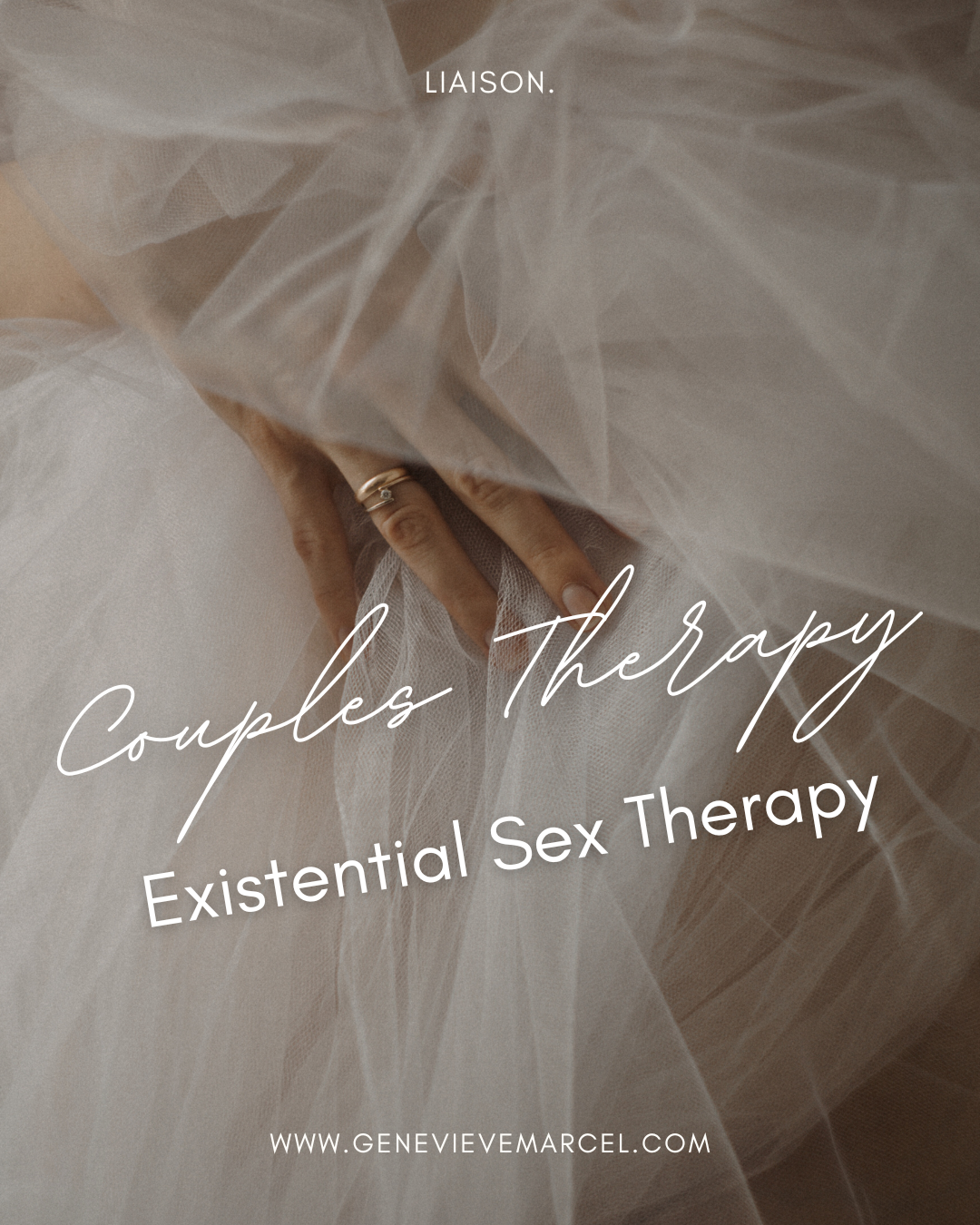Existential Couples Sex Therapy
Rebuilding Intimacy Through Truth and Connection
Many couples come to therapy because something feels off—but they can’t always name what it is. The conversations have dulled, the sex has faded, or conflict keeps looping without resolution. Beneath the surface, what’s often missing is something deeper: emotional safety, shared meaning, and honest connection.
As a sex therapist, I approach couples therapy through both an existential and attachment-based lens. This means we explore not only how partners relate, but why—examining the underlying emotional patterns, core fears, and personal histories that shape intimacy and sexuality over time.
Sex therapy, when integrated with attachment theory and existential exploration, helps couples reconnect—not just physically, but emotionally and relationally.
The Role of Attachment in Couples Therapy
Attachment theory reminds us that human beings are wired for connection. From early life, we develop strategies to get our emotional needs met—often shaped by how safe, responsive, or unpredictable our caregivers were.
These early experiences create “attachment styles” that continue into adulthood and intimate relationships. In couples therapy, these patterns often show up in ways like:
One partner craving closeness while the other pulls away
Fear of being too much—or not enough
Difficulty asking for what you need
Avoiding vulnerability to maintain control or independence
Feeling unseen, unheard, or emotionally alone in the relationship
When attachment needs go unmet, couples often disconnect sexually as well. The body shuts down. Desire fades. Intimacy feels distant or unsafe. This is where sex therapy can make a real difference—by helping partners understand the emotional roots of their physical disconnection.
Existential Sex Therapy: Beyond the Surface
While attachment theory explores how we learned to connect, existential sex therapy asks what connection means to us now.
From an existential perspective, relationships are places where we wrestle with freedom, responsibility, longing, and the fear of loss. Love brings joy—but it also brings risk: of rejection, of exposure, of change. Many couples unconsciously avoid these emotional truths, and over time, the relationship becomes a safe but distant routine.
Sex therapy grounded in existential work invites partners to ask deeper questions:
Are we really showing up as ourselves in this relationship?
What do we avoid saying, and why?
How does fear—of rejection, of closeness, of being known—shape our connection?
What does intimacy mean to us, beyond roles and expectations?
These questions don’t just help you improve your sex life—they help you become more emotionally honest and relationally awake.
What Couples Therapy Looks Like in Practice
In sessions, couples therapy may focus on:
Identifying attachment patterns and emotional triggers
Rebuilding trust through attuned listening and vulnerability
Exploring how past wounds are unconsciously reenacted in present dynamics
Understanding how emotional distance impacts sexual desire
Reclaiming sexual and emotional honesty within the relationship
Learning to tolerate emotional discomfort without withdrawing or blaming
As a sex therapist, I also help couples navigate the physical side of intimacy—without reducing it to performance or function. Instead, we explore what sex means in the relationship. Is it a place of connection? Obligation? Avoidance? Grief?
Often, desire begins to return when emotional safety and authenticity are restored.
Sex as a Reflection of Emotional Bond
For securely attached couples, sex tends to be more open, playful, and emotionally connected. But when attachment is strained—when one or both partners feel unseen or unsafe—sexual connection often suffers.
Sex becomes a barometer of the emotional bond.
That’s why sex therapy and couples therapy work best together. Rather than treating sexual issues in isolation, we look at how attachment dynamics, unspoken emotions, and existential fears shape the erotic landscape.
Reconnection comes not from “fixing” each other—but from seeing each other more clearly.
Love Is a Practice, Not a Given
Even the strongest relationships require reflection and recalibration. Love is not a static state—it’s a living, breathing practice. One that evolves as we do.
Attachment teaches us that love needs safety.
Existential therapy reminds us that love also needs truth.
Sex therapy invites couples to rediscover both.
If you're feeling stuck, distant, or disconnected—from your partner or your own desire—couples therapy can help you return to each other with more presence, depth, and understanding.
Ready to Reconnect?
If you’re interested in exploring your relationship through the lens of sex therapy, attachment theory, and existential exploration, working with a trained sex therapist can offer insight, clarit, and connection.

